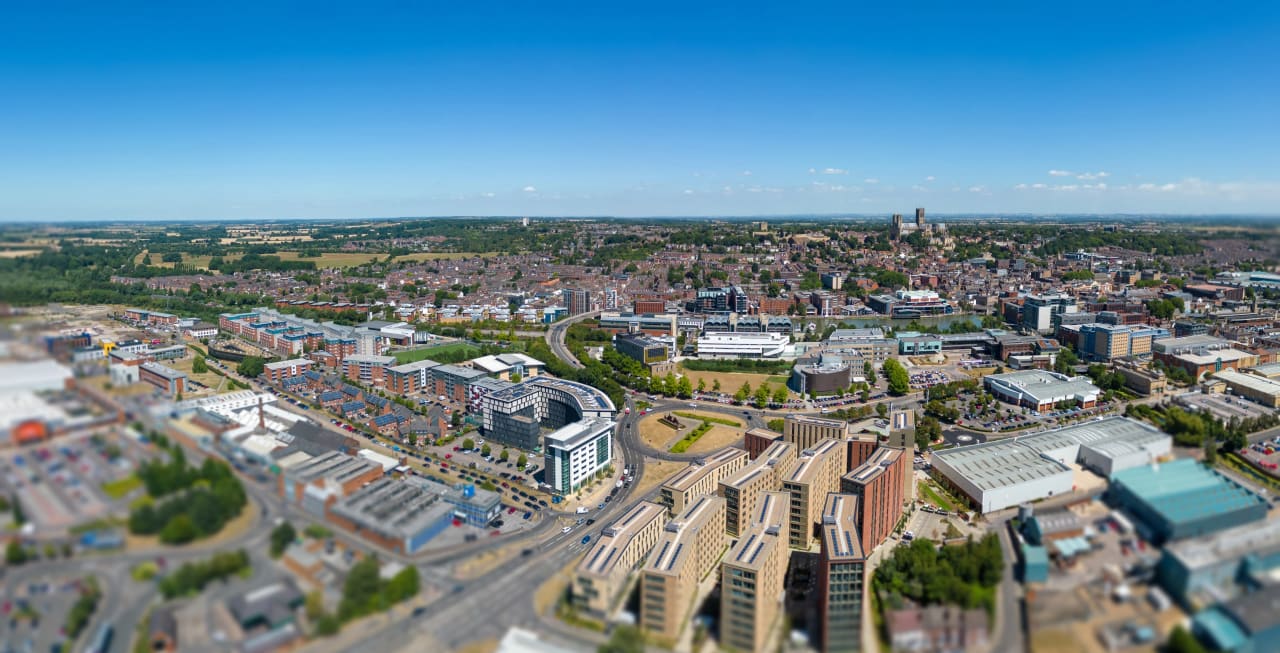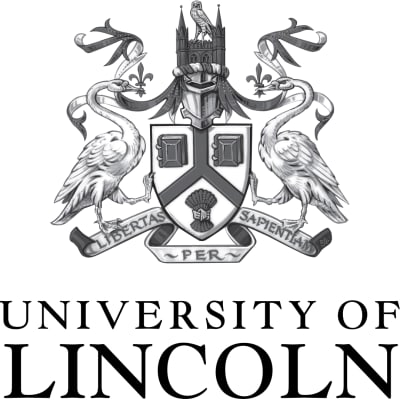
BSc (Hons) Biochemistry
University of Lincoln

Key Information
Campus location
Lincoln, United Kingdom
Languages
English
Study format
On-Campus
Duration
3 - 4 years
Pace
Full time
Tuition fees
Request info
Application deadline
Request info *
Earliest start date
Request info
* late applications will be considered if suitable vacancies remain
Discover Lincoln Wherever You Are in the World
Our webinars, subject masterclasses, question and answer sessions, and student panel talks are a great way to discover what it is like to live and study at the University of Lincoln.
Introduction
Biochemistry offers an understanding of the biological and chemical processes that allow life to thrive, giving us the tools we need to solve key challenges in cell biology, pathology, pharmacology, physiology, and genetics.
Advances in the field have revolutionised our knowledge of how biochemistry works and the mechanisms that underpin a wide range of cellular processes. This enables us to respond to human health problems and diseases by rationally designing new strategies and drugs as treatments.
Our BSc (Hons) Biochemistry degree takes a research-centred approach to teaching and learning, providing the opportunity to work closely with academics on collaborative research projects. The course examines the chemistry of life at a molecular level and reflects the University's expertise in pharmacology, biomedical science, biology, and biotechnology. Students have the opportunity to develop skills in practical laboratory techniques, data interpretation, critical analysis, computational skills allied to biochemistry, and scientific writing.
There is an optional overseas field trip available in the final year. This provides the opportunity to study and test biological phenomena in their natural environment.
"This information was correct at the time of publishing (July 2023)"
Admissions
Curriculum
How You Study
This programme introduces students to a range of topics, enabling them to widen their knowledge of biochemistry across a range of allied subjects. These include molecular biology, immunology, pharmacology, and biotechnology. The degree offers optional modules to allow students greater choice in their academic studies. Modules have been developed to cover topics relevant to current or developing fields allied to the life sciences.
During the first year, students can study a breadth of core topics, including biochemistry, physiology, genetics, and cell biology.
The second year allows students to add specialism to their degree. Students can study molecular biology, applications of biochemistry in clinical situations, and detailed analysis of biomolecules and enzymology. Optional topics include pharmacology, immunology, and human disease.
In the final year, students undertake an individual research project which provides the chance to develop investigation skills, in addition to studying key themes such as biotechnology, microbial biochemistry, protein structure and function, and clinical biochemistry.
First Year
- Analytical Chemistry 1: Molecular Techniques (Core)
- Human Anatomy and Physiology (Core)
- Introduction to Life Sciences (Core)
- Medical Biochemistry (Core)
- Microbial Biochemistry (Core)
- Research Methods for the Life Sciences (Core)
Second Year
- Biomolecules and Enzymology (Core)
- Clinical Biochemistry and Diagnostics (Core)
- Data Skills for the Life Sciences (Core)
- Molecular Biology (Core)
- Analytical Chemistry 2.2: Structural Techniques (Option)†
- Fundamentals of Pharmacology & Toxicology (Option)†
- Immunology (Option)†
- SLS Study Abroad (Option)†
Third Year
- Applied Biochemistry (Core)
- Life Sciences Research Project (Core)
- Protein Structure and Function (Core)
- Topics in Biochemistry (Core)
- 21st Century Medicine (Option)†
- Cancer Epidemiology and Pathology (Option)†
- Genetics & Bioethics (Option)†
- Introduction to Forensic Anthropology (Option)†
- Overseas Field Course (Option)†
† Some courses may offer optional modules. The availability of optional modules may vary from year to year and will be subject to minimum student numbers being achieved. This means that the availability of specific optional modules cannot be guaranteed. Optional module selection may also be affected by staff availability.
How You Are Assessed
The way students are assessed in this course may vary for each module. Examples of assessment methods that are used include coursework, such as written assignments, reports or dissertations; practical exams, such as presentations, performances or observations; and written exams, such as formal examinations or in-class tests. The weighting given to each assessment method may vary across each academic year. The University of Lincoln aims to ensure that staff return in-course assessments to students promptly.
Gallery
Program Outcome
How You Study
This programe introduces students to a range of topics, enabling them to widen their knowledge of biochemistry across a range of allied subjects. These include molecular biology, immunology, pharmacology, and biotechnology. The degree offers optional modules to allow students greater choice in their academic studies. Modules have been developed to cover topics relevant to current or developing fields allied to the life sciences.
During the first year, students can study a breadth of core topics, including biochemistry, physiology, genetics, and cell biology.
The second year allows students to add specialism to their degree. Students can study molecular biology, applications of biochemistry in clinical situations, and detailed analysis of biomolecules and enzymology. Optional topics include pharmacology, immunology, and human disease.
In the final year, students undertake an individual research project which provides the chance to develop investigation skills, in addition to studying key themes such as biotechnology, microbial biochemistry, protein structure and function, and clinical biochemistry.
Scholarships and Funding
For eligible undergraduate students going to university for the first time, scholarships and bursaries are available to help cover costs. The University of Lincoln offers a variety of merit-based and subject-specific bursaries and scholarships.
Several scholarship options are available. Please check the university website for more information.
Program Tuition Fee
Career Opportunities
Career paths for Biochemistry graduate exist in industrial, commercial, and academic research, and in development roles within the medical, food, pharmaceutical, and biotechnology industries. Graduates also go on to careers in scientific marketing and journalism, or education.